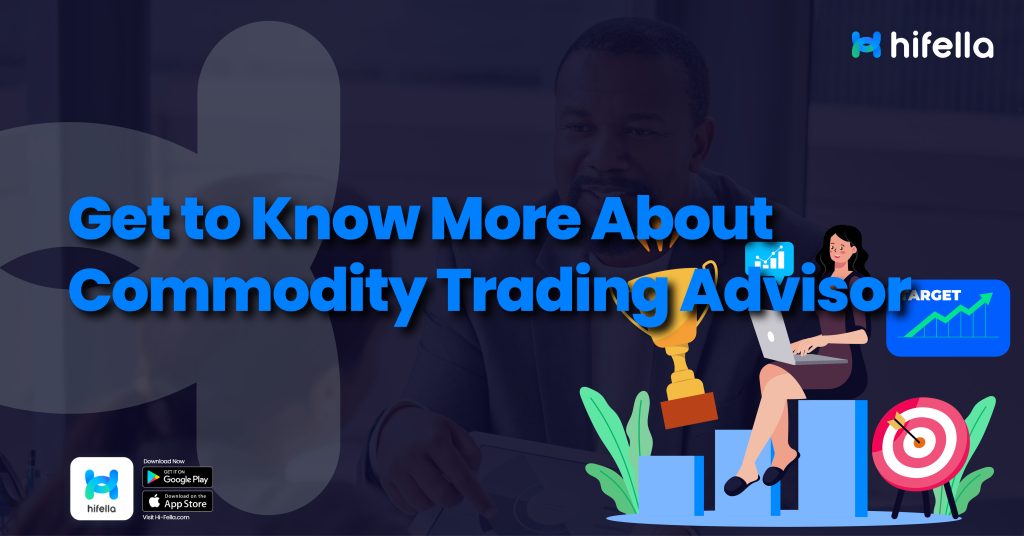A Commodity Trading Advisor (CTA) can be a big help if you’re interested in trading commodities. They know a lot about the market and can give you good advice.
CTAs also can help you make smart decisions and get better results. In this part, we’ll talk more about what CTAs do and how they can help you reach your financial goals. Let’s dive into it!
What is a Commodity Trading Advisor (CTA)

Source: Platinum Trading Solutions
A Commodity Trading Advisor (CTA) is a financial professional who specializes in providing advice and managing commodity trading accounts.
Also according to Investopedia, a commodity trading advisor (CTA) is someone who helps people buy and sell things like futures contracts, options, and foreign currency. They need to be registered with the NFA, a group that makes sure they follow the rules for trading.
They offer expertise in analyzing market trends, developing trading strategies, and executing trades on behalf of their clients.
CTAs typically serve individuals and institutions looking to invest in commodities such as energy (oil, natural gas, electricity), metals (gold, silver, copper), and agriculture (corn, wheat, soybeans).
The Role of a CTA in Commodity Trading
A Commodity Trading Advisor (CTA) is a financial expert who helps people invest in commodities like oil, gold, and corn. They do a few things:
- Market Analysis
CTAs conduct in-depth research to identify potential trading opportunities and risks within the commodity markets.
They analyze economic indicators, supply and demand factors, geopolitical events, and other relevant factors to assess market sentiment and predict price movements. - Strategy Development
Based on their analysis, CTAs create customized trading strategies tailored to their clients’ specific goals, risk tolerance, and investment horizon.
They consider factors such as desired returns, risk preferences, and time constraints to develop effective trading plans.
- Portfolio Management
CTAs actively manage their clients’ commodity portfolios, making buy and sell decisions to optimize returns and minimize risks.
They monitor market conditions, adjust positions as needed, and implement risk management strategies to protect their clients’ investments. - Risk Management
CTAs employ various risk management techniques to mitigate potential losses. They may use stop-loss orders, hedging strategies, and diversification to protect their clients’ investments from adverse market movements.
How CTAs Operate and Strategies They Use

Source: IASG
CTAs typically operate as independent firms or as part of larger financial institutions. They use a variety of strategies to trade commodities, including:
- Fundamental Analysis
CTAs analyze economic indicators, supply and demand factors, and geopolitical events to identify trends in commodity prices.
For example, they may consider factors such as global economic growth, crop yields, and geopolitical tensions to assess the potential impact on commodity prices. - Technical Analysis
CTAs use charts and technical indicators to identify patterns and predict future price movements.
They may analyze historical price data, support and resistance levels, and technical indicators to identify potential trading opportunities. - Quantitative Analysis
CTAs employ mathematical models and algorithms to analyze large datasets and make trading decisions.
They may use quantitative techniques such as statistical analysis, machine learning, and artificial intelligence to identify patterns and trends in commodity markets.
Benefits of Working with a CTA
A Commodity Trading Advisor (CTA) can offer several advantages to individuals and institutions involved in commodity trading:
- Expertise and Knowledge
CTAs possess specialized knowledge and experience in the commodity markets. They can provide valuable insights and analysis that may not be readily available to individual traders.
- Time-Saving
CTAs handle the complexities of commodity trading, freeing up time for their clients to focus on other areas of their lives or businesses. - Risk Management
CTAs employ various risk management strategies to protect their clients’ investments from market volatility. They can help identify potential risks and implement measures to mitigate them.
- Access to Opportunities
CTAs may have access to trading opportunities that may not be readily available to individual investors. Their networks and relationships within the industry can provide them with valuable insights and information.
- Professional Guidance
CTAs can provide professional guidance and support throughout the trading process. They can help clients understand market trends, analyze data, and make informed decisions.
In summary, working with a CTA can offer numerous benefits, including expertise, time-saving, risk management, access to opportunities, tailored strategies, and professional guidance.
Regulatory Framework and Legal Requirements for CTAs
CTAs are subject to regulation by the Commodity Futures Trading Commission (CFTC) and the National Futures Association (NFA).
These regulatory bodies ensure that CTAs adhere to specific standards of conduct and financial reporting. By being regulated, CTAs are held accountable for their actions and are required to act in the best interests of their clients.
How to Select a Qualified CTA
When selecting a CTA, it’s essential to consider the following factors:
- Experience
Look for a CTA with a proven track record of success in commodity trading. Consider their experience in the specific commodity markets you are interested in and their overall performance. - Fees
Understand the fees charged by the CTA, including management fees and performance fees. Compare fees from different CTAs to find the most competitive rates. - Investment Philosophy
Ensure that the CTA’s investment philosophy aligns with your risk tolerance and goals. Consider their approach to trading, whether they focus on fundamental analysis, technical analysis, or a combination of both. - References
Ask for references from previous clients to get insights into the CTA’s performance and reputation. Contact former clients to inquire about their experience working with the CTA and their satisfaction with the services provided.
A commodity trading advisor (CTA) is a professional who provides expert advice and manages commodity trading accounts. They can help you make informed decisions about buying and selling commodities, such as energy, metals, and agricultural products.
To find suppliers and buyers for these commodities, consider using platforms like Hi-Fella. Hi-Fella is a marketplace where you can connect with businesses from around the world, explore various trading opportunities, and find reliable partners for your commodity trading ventures!








